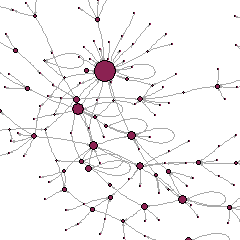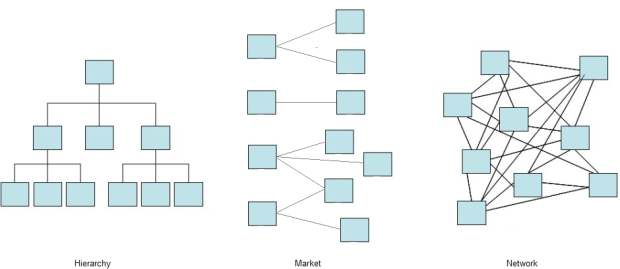Economics traditionally considered firms and markets as two alternative ways of coordinating economic activities. Nobel prize winner Ronald H. Coase (1937) demonstrated that it all hinges on “transaction costs”, such as the need to search for a trade partner, the time needed to negotiate a contract, the legal expenses to draw it up and if necessary, to enforce it. When these costs are high, then hiring people in a firm is the right solution. When they are low, then a harmonious state will emerge spontaneously from the choices of independent, self-employed individuals. The difference, further emphasized by the work of Oliver Williamson, another Nobel, is between the world of bureaucracy, hierarchy and salaried work, and the world of the market and myriad micro-entrepreneurs.
This dichotomous description seemed reductive to economic sociologists, and Mark Granovetter (1985) pointed to social networks as coordination devices. Networks enable circulation of knowledge, formation of trust, emergence of shared norms in informal ways, thereby lowering costs and smoothing economic transactions. Walter W. Powell (1990) saw networks as an alternative to market and hierarchy, while others thought of it as a complement rather than a substitute. In some cases, the relevance of networks is flagrant: think of “collegial“, horizontal organizations such as legal partnerships, which are clearly not markets, and which have no vertical hierarchy either.
The rise of online platforms challenges these older views today. Powered by digital data and matching algorithms, platforms are meeting places for actors on the two sides of a market: riders and drivers (Uber, Lyft, BlaBlaCar), guests and hosts (Airbnb), buyers and sellers (eBay), and so on. Officially, platforms are intermediaries only, able to put in touch, say, those who need a lift and those who have a car, so that they can share the ride. Platforms don’t employ drivers and don’t own cars.
Continue reading “Hierarchy, market or network? The disruptive world of the digital platform”


